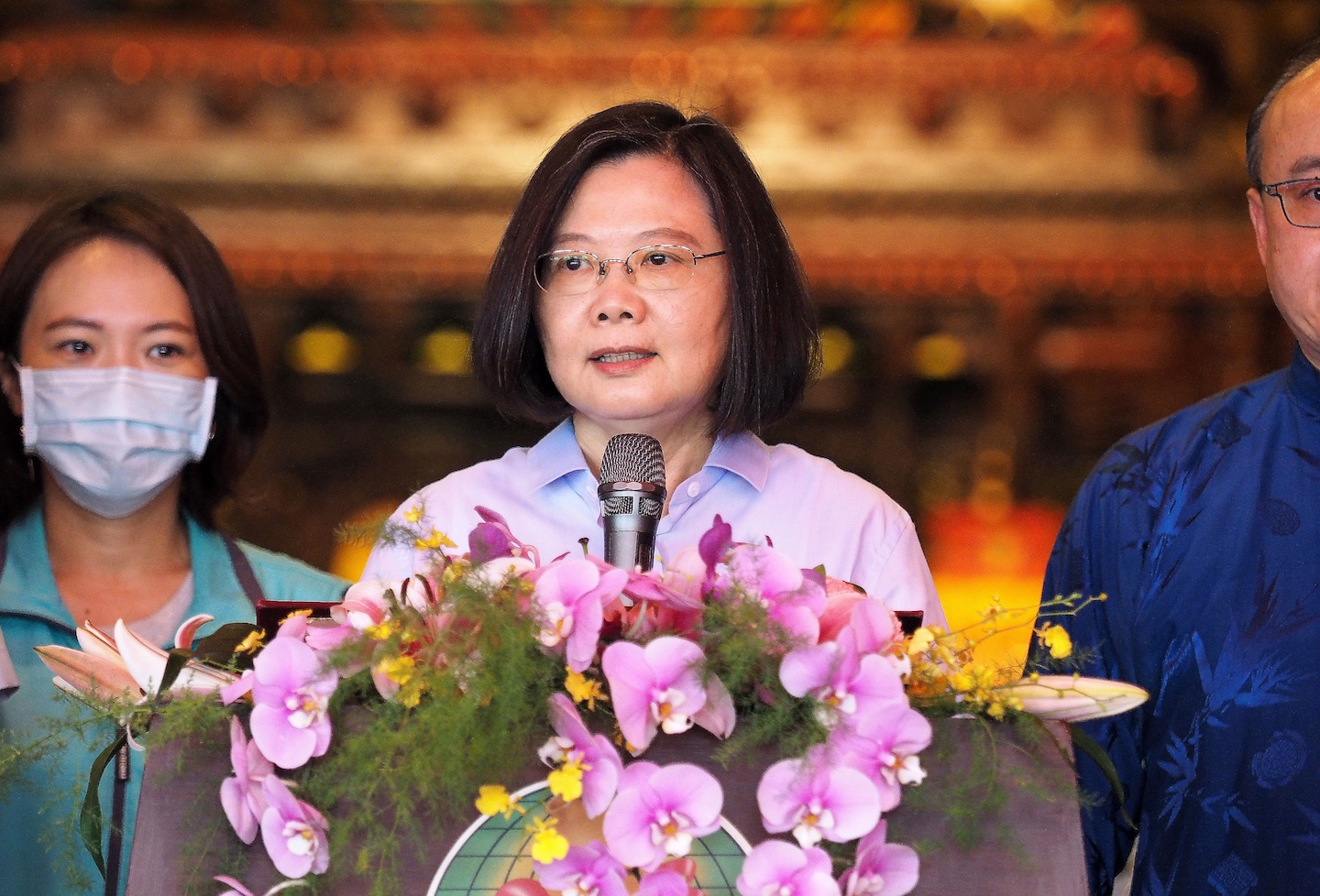Taiwan and U.S. to hold highest-level meeting since 1979 as China tensions soar

The highly publicized trip, which Beijing warned would affect regional stability, marks a break from the usual practice in Washington and Taipei. The two governments often conduct exchanges behind closed doors to avoid antagonizing China, which claims Taiwan, an island of 23 million backed militarily by the United States, as its own territory that it would secure at whatever cost.
But President Trump has upended the U.S. approach to Taiwan since the dawn of his administration and has now made countering China on trade and technology — and blaming Beijing for the economic turmoil wrought by the novel coronavirus pandemic — central to his reelection campaign.
In a pointed statement, the Department of Health and Human Services said the rare visit was part of “America’s policy of sending high-level U.S. officials to Taiwan to reaffirm the U.S.-Taiwan friendship” and celebrate shared democratic values “in contrast to authoritarian systems.”
“I look forward to conveying President Trump’s support for Taiwan’s global health leadership and underscoring our shared belief that free and democratic societies are the best model for protecting and promoting health,” Azar said.
China’s Nationalist forces fled to Taiwan in 1949 after their defeat by Communists in a civil war. In the ensuing decades, both parties claimed rightful rule over China and have at times agreed on the principle of the existence of “one China,” even as Taiwan transformed itself into a de facto independent democracy without formally declaring independence.
Today, China’s Communist Party maintains the “reunification” of China — by military force, if necessary — as one of its highest and most sensitive overarching priorities. The leadership objects vehemently to diplomatic gestures, including visits by foreign dignitaries, that appear to give credence to Taiwan’s status as a sovereign state. Since Tsai entered office in 2016 on a platform that does not explicitly acknowledge the “one China” principle, Beijing has sought to punish her political party by peeling away Taiwan’s diplomatic partners, who now number just 15, and boycotting any multinational corporation that recognizes Taiwan as a separate entity.
On Wednesday, Chinese Foreign Ministry spokesman Wang Wenbin urged the United States to abide by the “one China” principle to avoid “affecting peace and stability across the Taiwan Strait.”
“China is firmly opposed to official interactions with Taiwan. China has lodged representations with the U.S.,” he said at a regular briefing. “Taiwan is the most important and sensitive issue in China-U.S. relations.”
Of the half-dozen visits by Cabinet-level U.S. officials since the 1990s, the last came in 2014, when Environmental Protection Agency Administrator Gina McCarthy visited.
Official exchanges are often delicate affairs; no sitting Taiwanese leader has ever visited Washington, while the State Department rarely publicizes U.S. official visits to Taiwan before they are completed.
Trump broke diplomatic norms days after his election victory in 2016 when he took a congratulatory call from Tsai — the first time a U.S. leader had spoken directly to his Taiwanese counterpart since Washington switched diplomatic recognition to Beijing.
Since then, the Trump administration has reinforced ties with Taiwan, including with significant weapons sales, and signed into law the Taiwan Travel Act in 2018 that allowed the Taiwanese president to make more extensive layovers in U.S. cities and loosen restrictions on U.S. officials visiting Taiwan.
Meanwhile, Trump has pursued a confrontational strategy against Beijing that has accelerated sharply in recent months.
China has responded by issuing hands-off warnings to the U.S. military, dispatching naval vessels through the Taiwan Strait and conducting large-scale military drills that simulate the island’s capture. The tensions have sparked warnings from officials that the risk of a military clash over Taiwan is rising precariously.
While a visit by Azar will not be considered as provocative in Beijing as a trip by Secretary of State Mike Pompeo, for instance, it revolves around a charged, high-profile issue — the coronavirus pandemic — for which the Trump administration has heaped blame on China.
Taiwan has reported fewer than 500 confirmed cases since the start of the pandemic, while China has reported roughly 84,000 cases and the United States nearly 5 million, the most in the world.
Taiwan’s Foreign Ministry said Wednesday that it looked forward to “strengthening Taiwan-U.S. cooperation in areas of medical research, supply chain security, and global health.”
Natasha Kassam, a researcher at the Lowy Institute in Sydney and a former Australian diplomat who served in Taipei and Beijing, said Azar’s visit made sense on face value given Taiwan’s outsize success in controlling the disease.
“But the White House has not been particularly willing to listen to health experts at home,” she noted.
“It’s more likely that Washington recognizes that a close relationship with Taiwan will help President Trump score political points domestically. And while Taiwan will welcome demonstrations of U.S. support, these decisions should be made to protect Taiwan’s sovereignty, rather than a game of brinkmanship with China.”






